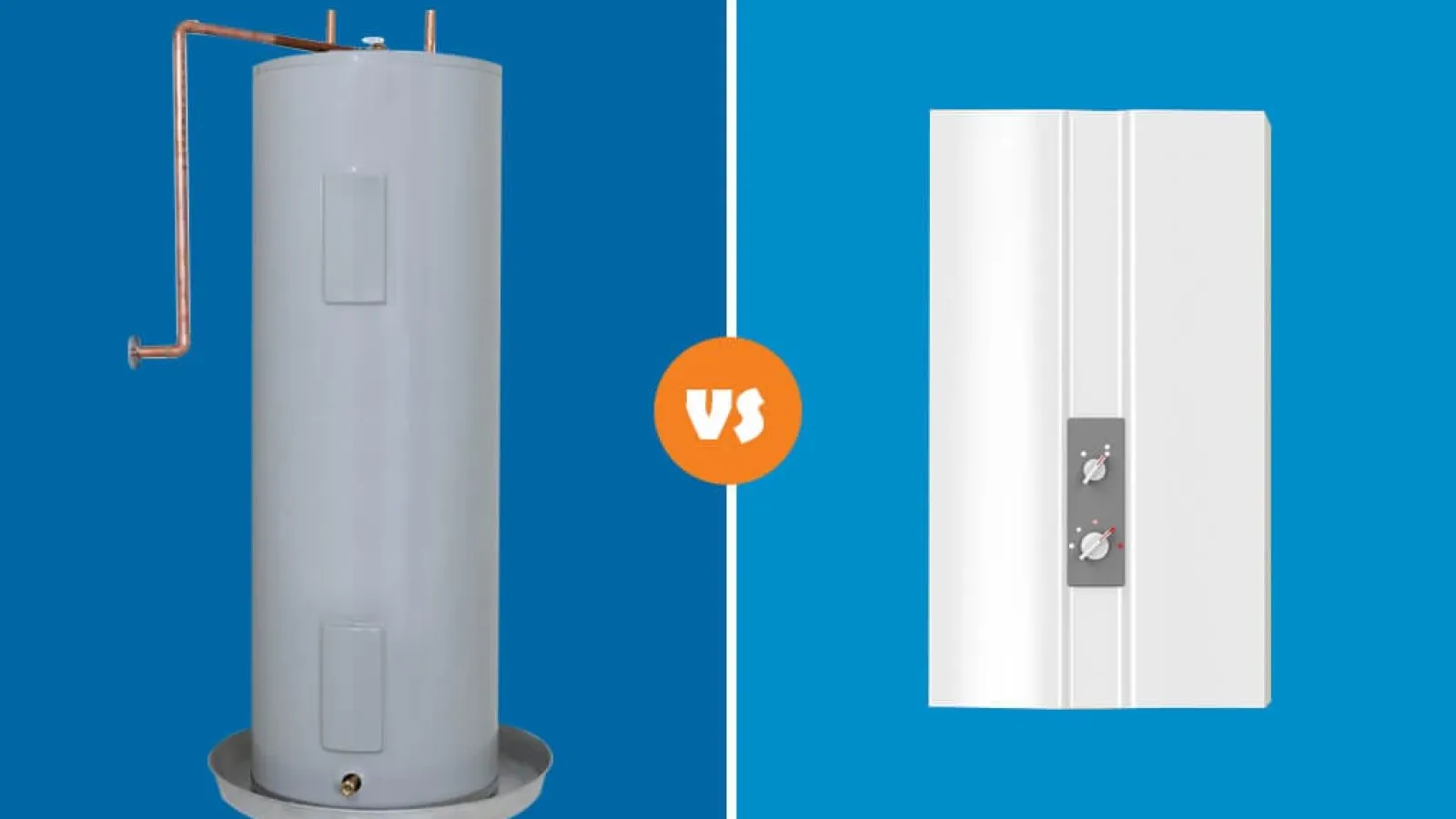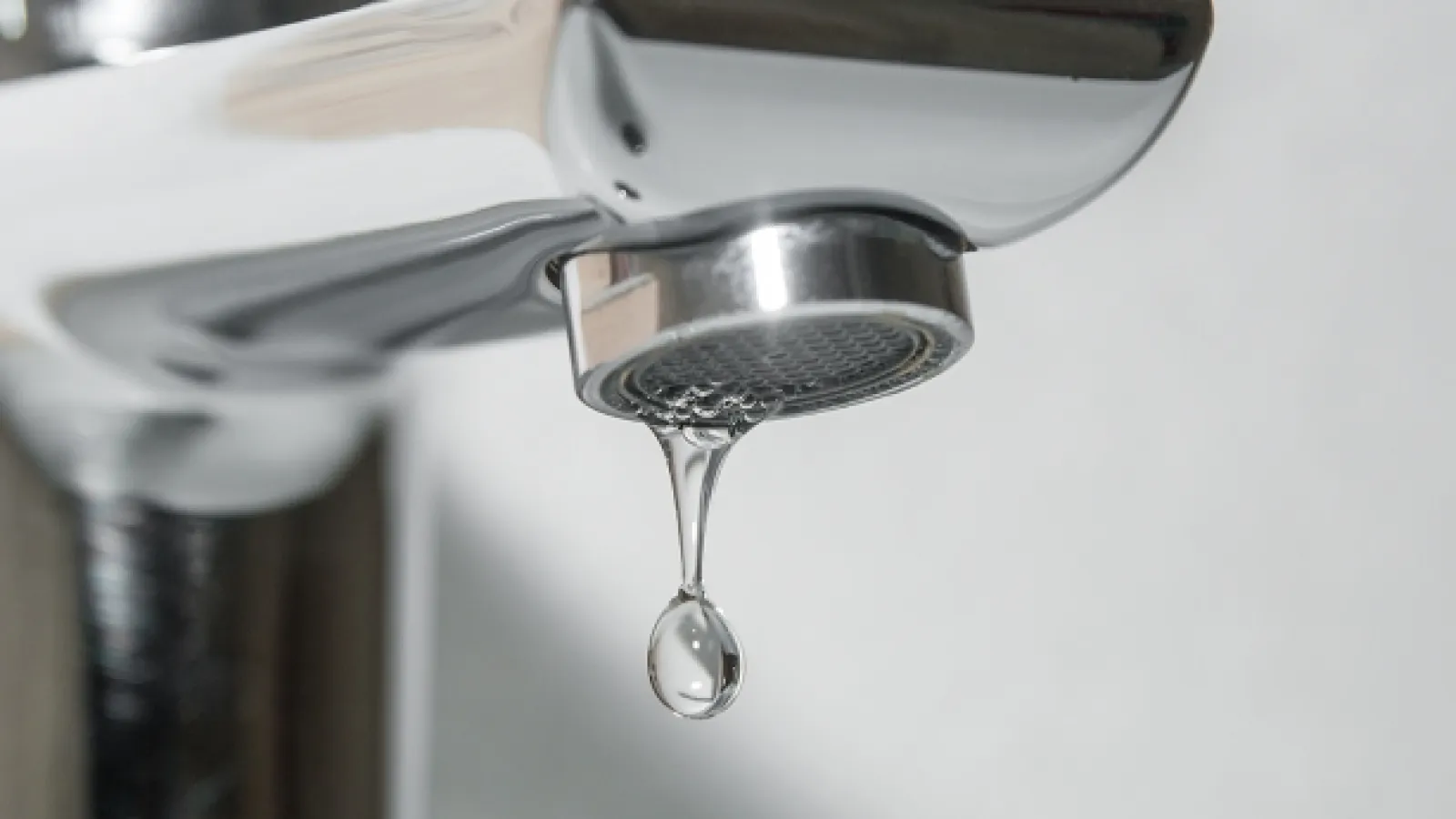Before you buy a new water heater, you need to choose between a tank or a tankless water heater system. Each type of water heater works and acts differently, so it’s important to be educated on the differences if you’re planning on choosing a new water heater. The best choice for your Atlanta, GA, area home will often depend on your energy savings goals, available space for installation, and your household’s hot water usage habits.
Whether you choose a tank or tankless water heater in Atlanta, turn to Estes Services for quality products and skilled services. Our licensed plumbers are here to assist you every step of the way.
What Is a Tankless Water Heater?
A tankless system is exactly what the name says it is – they do not use a tank for storing hot water. Instead, water is heated whenever you turn on the hot water.
A tankless heater uses a powerful heat exchanger to transfer heat from one source to another, increasing the water temperature. This heat exchanger is only activated when the hot water is turned on, causing water to flow towards the heat exchanger.
The incoming water is heated to your preset temperature while it circulates through the heat exchanger. You have the option of installing a tankless system powered by electricity, propane, or natural gas.
A tankless water heater offers hot water within seconds and eliminates preheated water for later use. The average tankless system provides hot water ranging from 2 to 5 gallons of water per minute. Gas-powered water heating produces a higher flow rate compared to electric water heating.
A tankless water heater is less susceptible to being overused and producing cold water than a tanked water heater is. This is because, rather than having a set amount of hot water stored as a tanked water heater does, a tankless water heater continues to heat water as it flows through the exchanger.
How Does a Tank Storage Water Heater Differ?
A traditional tank storage water heater stores water in a large tank and preheats between 30 to 50 gallons of water in the storage area, depending on the size of the tank. The preheated water is used whenever someone in the home uses hot water. When the tank is empty, more water flows back in to be preheated.
However, once the tank is empty, the water will not be immediately warm. We’ve all been in the shower after a significant amount of hot water was used by someone else in the house, causing your shower to become ice cold. This is one of the common reasons that people switch from a tank to a tankless water heater.
One of the most significant differences between tank and tankless units is their footprint. Tank water heaters are quite large, requiring several square feet of floor space and horizontal area. Alternatively, tankless water heaters can be affixed to a wall, requiring no floor space and are very compact in size.
Are Tankless Water Heaters More Energy Efficient?
One of the most significant differences between the two is the savings. Tankless water heaters are 8 to 24 percent more energy efficient than storage water heaters. They deliver hot water within seconds, eliminating standby heat loss. They are more energy efficient because water is only heated when it’s needed. You can save money on your energy bills with a tankless system because the unit isn’t constantly heating water stored in a tank or piping.
Pros and Cons of Tankless Water Heaters
Pros of Tankless Water Heaters
- A tankless hot water heater lasts up to twice as long as a traditional water heater. Regular tank heaters last between 10 to 15 years, while a tankless heater lasts up to 20 years with proper maintenance.
- With a tankless system, you get more flexibility and versatility for installation purposes. On-demand water heaters are smaller, allowing them to fit into compact spaces. You can install a tankless heater under a sink, in a closet, or somewhere close to the faucet. They can even be installed outside!
- Hot water within seconds is achieved only with a tankless heater. The hot water is unlimited as long as it’s operating within its capacity.
- A tankless water heater allows you to conserve more water at home. Because water is used immediately and you don’t have to wait for it to heat up, you waste less water.
- Remote controls are available for some models with up to four separate settings.
Cons of Tankless Water Heaters
- They vary in price according to size and are typically more expensive to purchase than a traditional heater.
- If your home is equipped with a traditional tank, it must be retrofitted to accommodate a tankless unit. Water heater installation is more complex and comes with a higher price tag. New gas lines may need to be installed as well as ventilation for gas units, or an additional electric circuit if you choose an electric tankless heater.
- A tankless water heater often struggles to provide sufficient hot water when multiple taps call for hot water at the same time.
Pros and Cons of Storage Tank Water Heaters
Pros of Storage Tank Water Heaters
- The initial cost to purchase a tank water heater is typically less than a tankless unit.
- Homes already equipped with a conventional storage-tank water heater are already set up for installation of another unit of the same style, which means installation is less complicated.
- You are able to use hot water through multiple taps at the same time without sacrificing warmth. A tankless water heater is only able to produce so much hot water at a time. When multiple applications use hot water simultaneously, not enough hot water is always available.
Cons of Storage Tank Water Heaters
- Traditional storage water heaters constantly heat and reheat water at a preset temperature, regardless of when water is needed. Your water bill and energy bills are higher with a traditional unit.
- The size of a traditional heater is much larger than a tankless unit, making it harder to find a place for it in your home. They cannot be installed outside.
- Because this style of heater stores heated water, it eventually runs out, and you must wait for the tank to refill and reheat before hot water is available again. Larger tanks necessitating higher energy costs are available if you need hot water for extended amounts of time.
- Traditional water heaters last between 10 to 15 years with proper maintenance, which is about half the amount of time a tankless water heater is expected to last.
Contact Estes for Water Heater Services
If it’s time for a new water heater in your Atlanta area home, schedule service with Estes for quality equipment and professional water heater installation. If you’re having trouble deciding between a tank or tankless water heater unit, our experienced technicians are here to help you understand your options and determine the right choice based on the needs of your home.




